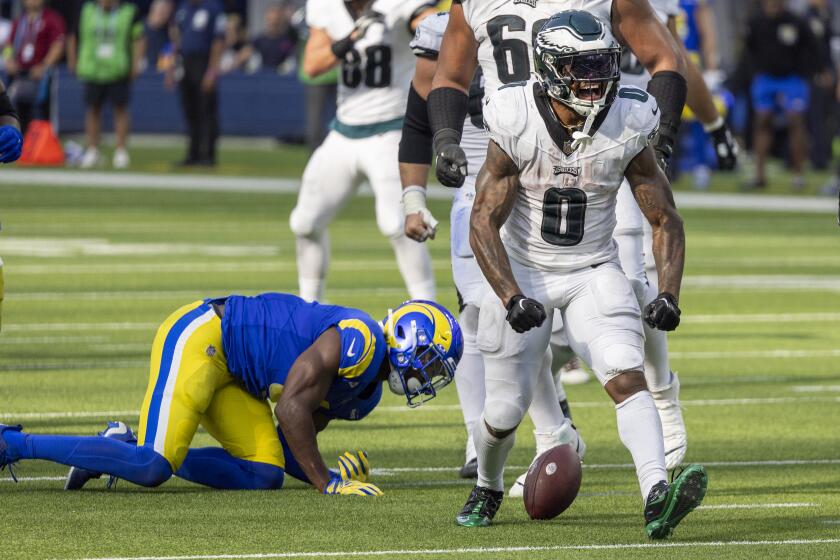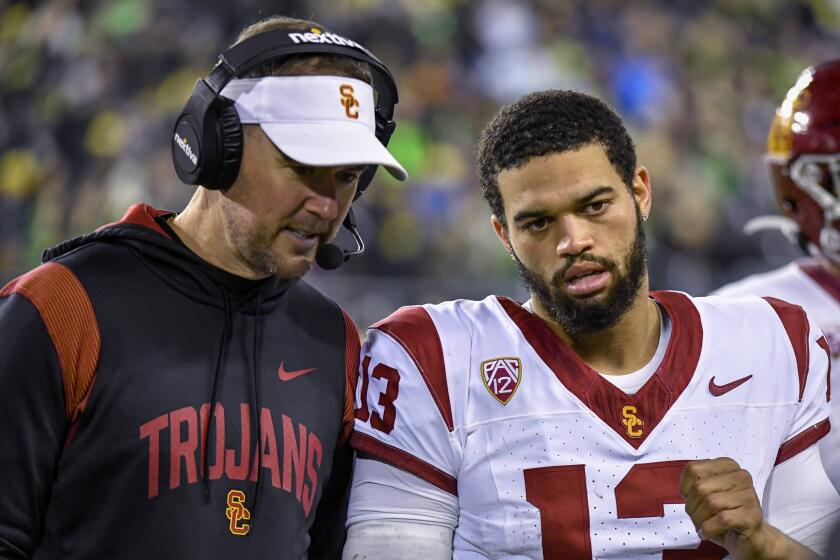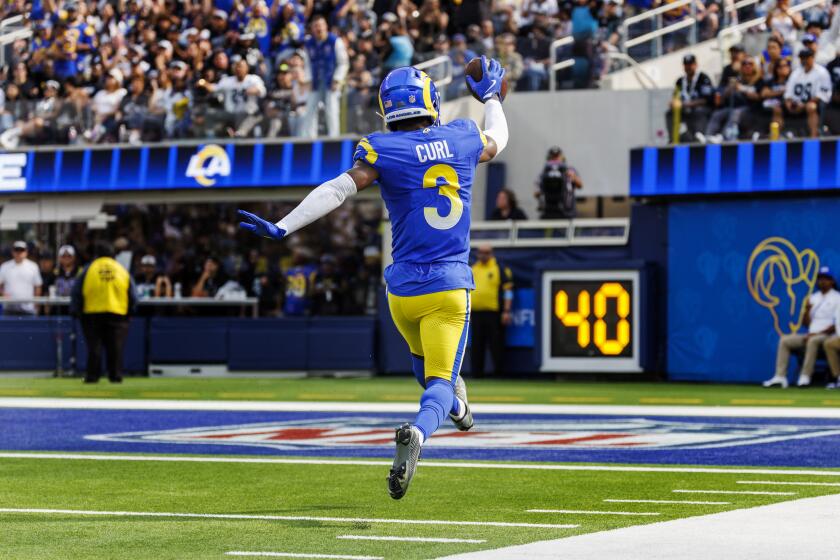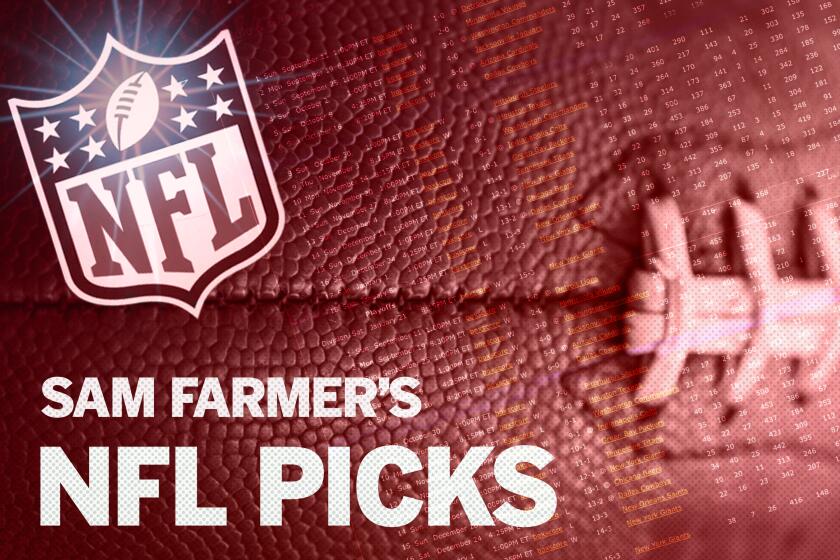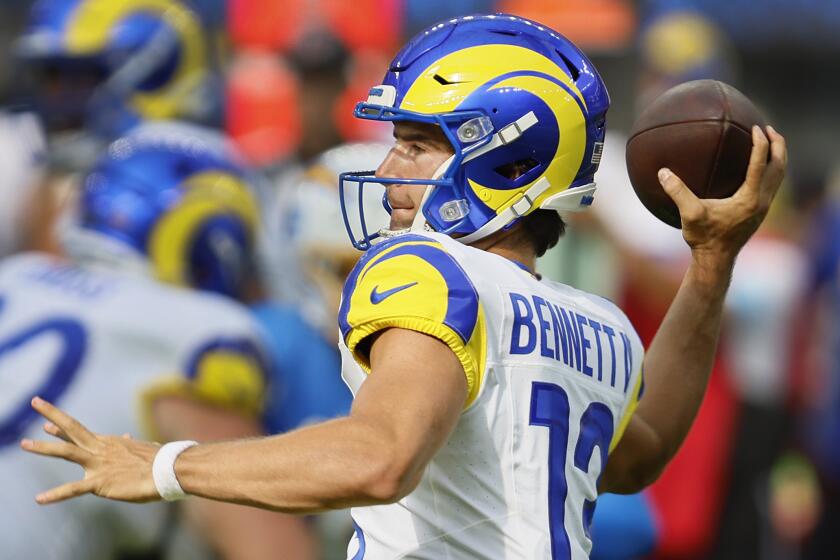‘Brotherly Shove’ might be unstoppable, but it’s a lot more brutal than it looks
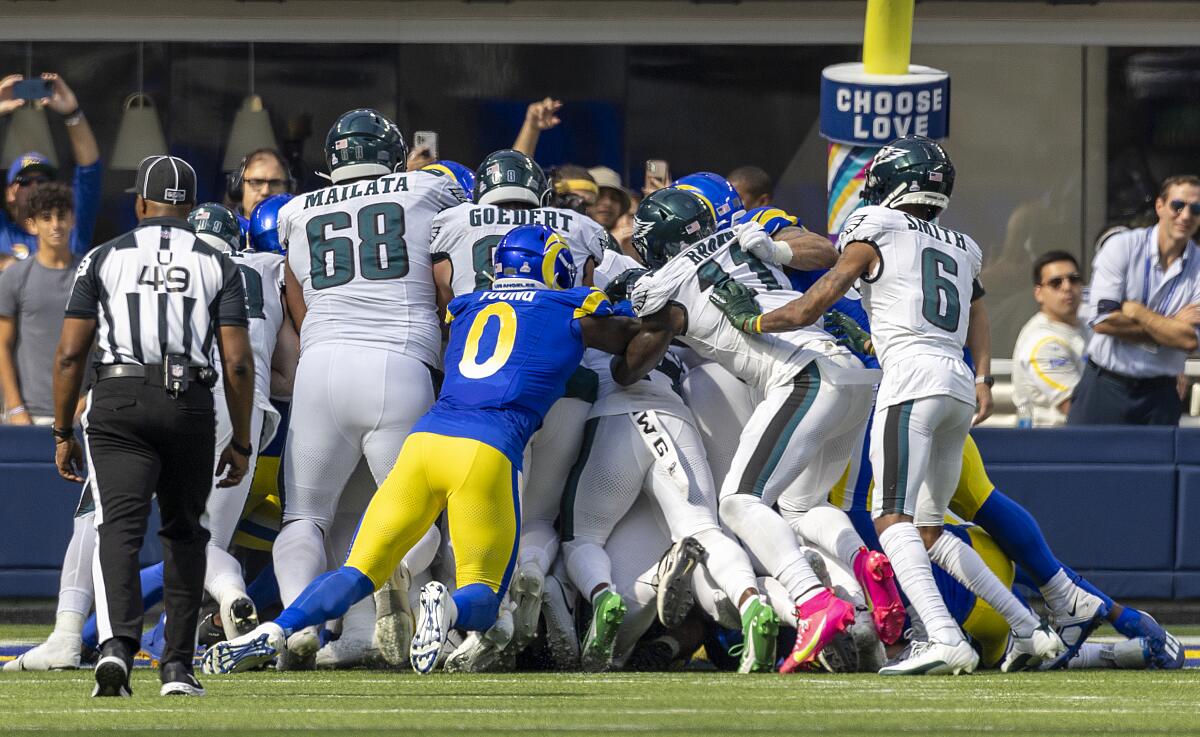
When push comes to shove, there’s really no stopping the Philadelphia Eagles.
No team in football has fine-tuned the quarterback sneak — the “Brotherly Shove” — as effectively, with quarterback Jalen Hurts aided not just by his massive offensive linemen but by a pair of players immediately behind him poised to push on his backside as soon as the ball is snapped.
The surging cluster of humanity turns the quarterback into a crowd surfer, a cork bobbing in a wave.
That was the case at the end of the first half Sunday, when the Rams were flagged for pass interference in the end zone, putting the Eagles at the one with two seconds to play.
Matthew Stafford is sacked twice by Haason Reddick late in the fourth quarter, ending the Rams’ hopes of a comeback in a 23-14 loss to the Eagles.
What followed was football’s version of a layup. Snap. Shove. Score.
“We’re really, really good at it,” center Jason Kelce said of the patented push. “We have a quarterback that’s great at it. Coach who coaches it really well. When you have a yard and a 90-something-percent chance of converting, I think it’s the right call.
“I’m not an analytics guy, but when you’ve got a 90% chance to score a touchdown, I’m taking that all day over kicking three points.”
The Eagles converted on four of their six pushes in the 23-14 victory, with the two failed attempts coming at the end of the game on third-and-three and fourth-and-two.
The play is so unstoppable, at least the way Philadelphia runs it, that the NFL’s competition committee took a look at it last offseason and probably will do so again. The league doesn’t like intrigue being bled from the game, and that’s why those automatic point-after kicks were moved back to make them more challenging.
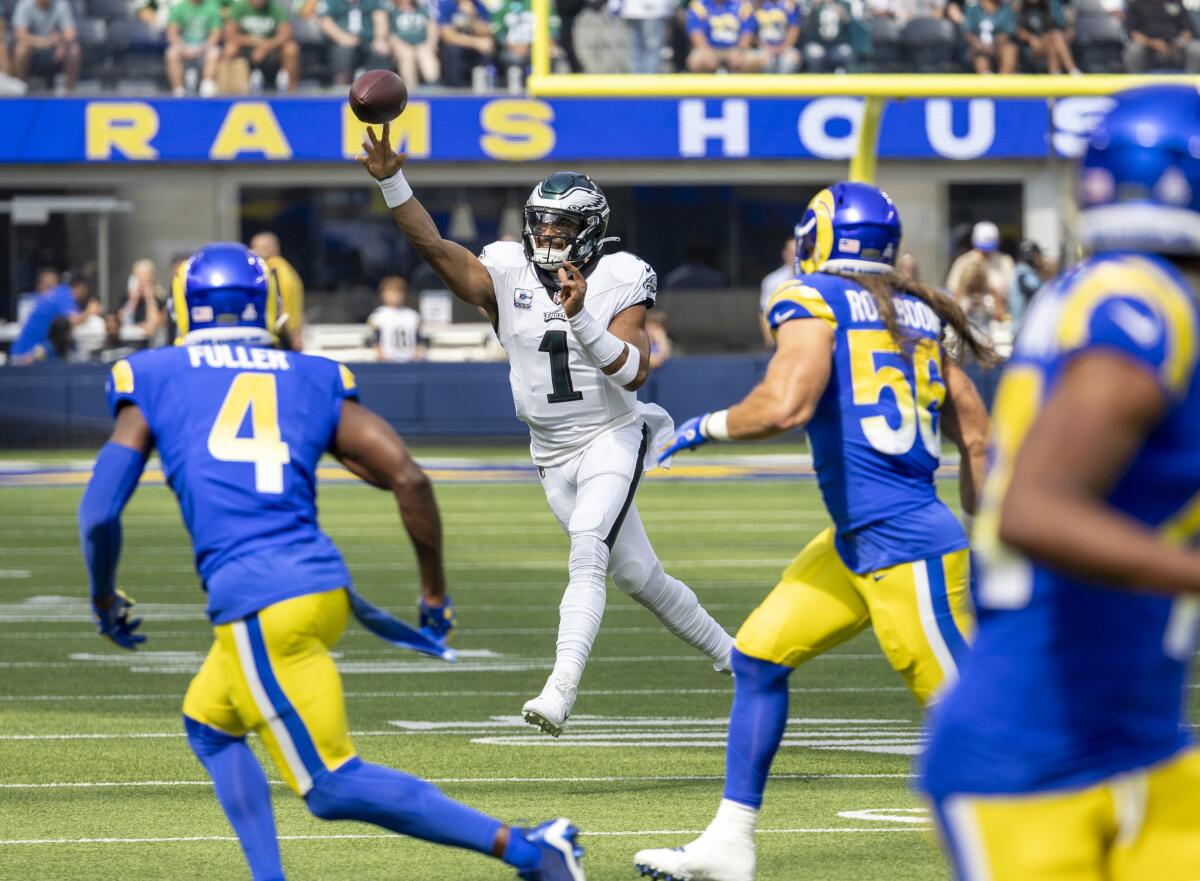
But just because it’s seemingly easy for the Eagles, that doesn’t mean it’s a simple yard for every offense in the league.
“The one thing that’s helping us is other teams aren’t as good at it,” Kelce said. “Everybody else is around the 60%, 70% threshold. There’s an argument to be made that that’s competitive. They’d have a hard argument, in my opinion, if other teams don’t run it as well.”
It’s not something that teams practice during the week. The Eagles don’t have Hurts working on sneaks anytime else but in a game. The play is too risky.
“It hurts,” Kelce said. “It’s a grueling play. Sometimes it’s your back. I’ve landed on my elbow. For the most part, it’s not a high-impact play, it’s more that there’s a lot of mass and people lying on top of each other. It’s a very energy-draining play.”
Seth Makowsky has worked with athletes such as the Eagles’ Jalen Hurts on concentration skills, using the game of chess as an avenue for decision making.
Said Eagles left tackle Jordan Mailata: “Watch how long it takes us to get up after the play, because it’s usually at the bottom of a pile. When you’re at the bottom of the pile, that usually means we got the objective done, but then you have everybody lying on top of you. Even when you’re still executing the play, you get stepped on, head-butted. It’s a brutal play.”
So what makes Philadelphia better at it? First, the Eagles have a history of being a good quarterback-sneak team. The tradition has been passed down from roster to roster. And second, although they don’t run live reps of the play in practice, they walk and talk their way through it constantly.
“We talk about every look,” Mailata said. “We talk about the technique. We talk about physics and about the simple stuff. We talk about the math behind it.”
As math goes, this number from Sunday had to have the Rams slapping their foreheads: Philadelphia converted 72.2% of its third downs (13 of 18). What’s more, the Rams’ defense came into the game having allowed opponents a conversion rate of 26.67%, second-lowest in the league.
SoFi Stadium, home to Rams and Chargers games, isn’t as dangerous for fans as many other NFL venues, but alarming incidents have occurred.
The Eagles punted just once Sunday, held the ball for 37 minutes, 55 seconds (compared with the Rams’ 22:05), and had two drives that lasted longer than eight minutes, also known as an eternity.
But the signature Philadelphia play is the shove. For decades, NFL rules prohibited offensive players from directly aiding a runner in any way, whether it was pushing or pulling him. But in 2005, the league clarified its stance. There would be no pulling of ball carriers by teammates, but pushing was too difficult to legislate.
That might end at some point. For the moment, though, the Eagles are going to keep doing what they do.
“We’ve got to keep running it,” Mailata said, “until they say we can’t.”
More to Read
Go beyond the scoreboard
Get the latest on L.A.'s teams in the daily Sports Report newsletter.
You may occasionally receive promotional content from the Los Angeles Times.

